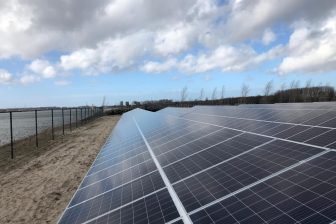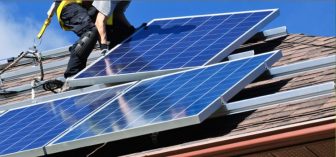Minder poolijs dan ooit
22 november 2016 (Gecorrigeerd) – New Scientist meldt dat er minder poolijs is dan ooit. Het poolijs smelt nu in plaats van aan te groeien. ‘Yes, we should be worried.’
Uit het bericht van de New Scientist
‘(…) At this time of year, sea ice should be growing rapidly as winter sets in. But the cold air that usually sits over the pole has flowed south over Siberia, while warmer air has flowed north. This has resulted in temperatures an astonishing 20 °C warmer than usual, so sea ice is melting when it should be forming. (…)
Sea ice levels at both poles are much lower than the seasonal average. Antarctic sea ice levels have actually been increasing slightly over the past three decades, so this low is unusual. The increase could be due to a combination of stronger winds spreading out the sea ice and fresh water from melting ice on land diluting seawater so it freezes at higher temperatures.
Global warming may be making freak weather events in the Arctic more likely
All weather events are influenced by climate change as they now take place in a world more than 1 °C warmer than a century ago. There is growing evidence that the crazy weather we’re seeing in the Arctic and surrounding regions is made far more likely by climate change. Normally, cold air is kept locked up in the Arctic by a spinning vortex of air bounded by fast winds high in the atmosphere called the jet stream. Now, more and more often, the jet stream seems to weaken and allow cold Arctic air to flow south, with warm air flowing north to replace it. This odd jet stream behaviour could be to blame for many of the freakishly cold weather events in recent years as well as current events.
Yes, we should be worried
What’s happening now is alarming, but it’s not the short-term craziness we should be worrying about. The reason to be alarmed is that this kind of event can happen only because the planet is so much warmer than in pre-industrial times. Sea ice in the Arctic might fall to a record low next year, but it is likely to then briefly “recover” for a few years before falling to new record lows. How do we know? Because there are negative and positive feedback effects at work. For instance, open water exposed by the loss of sea ice soaks up more of the sun’s heat during summer, but it also loses much more heat in autumn. What will happen to the sea ice in Antarctica over the next few years is less clear. We don’t have a good understanding of what’s going on there, largely because we don’t have good data. We have no idea how thick the sea ice around Antarctica is, for instance. In the long term, however, Antarctic sea ice is expected to decline too. The loss of sea ice does not directly raise global sea levels, but it is already affecting us all through its effects on the weather. As the planet continues to warm we are going to see even more freakish weather. (…)’
Bronnen
New Scientist, 21 november 2016: Global sea ice has reached a record low – should we be worried?



